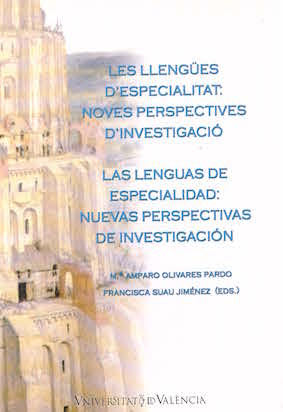Un aspecto del discurso ensayístico francés: los marcadores temporales
DOI:
https://doi.org/10.7203/qfilologia.10.5088Paraules clau:
texts d'especialitat, texts d'assaig, cohesió tempioral, marcadors temporals Resum
Resum
El propòsit d'aquesta contribució consisteix en l'anàlisi dels textos d'especialitat , en concret els textos assatgístics, de tall sociològic. Hem intentat demostrar, des d'una perspectiva pragmàtica , que les marques temporals (marcadors temporals, circunstants temporals i estructuradors del discurs, entre uns altres), juguen un paper important en la legitimació d'aquests textos. En efecte, l'escriptor ens presenta la informació amb més força argumentativa en ordenar els arguments de manera coherent. Amb aquest objectiu, hem estudiat els usos de déjà, encore, toujours, jamais, entre uns altres, trets de La défaite de la pensée del sociòleg A. Finkielkraut.
 Descàrregues
Descàrregues
Descàrregues
Publicades
Com citar
-
Resum376
-
PDF (Español)233
Número
Secció
Llicència
 Este obra está bajo una licencia de Creative Commons Reconocimiento-NoComercial-SinObraDerivada 4.0 Internacional.
Este obra está bajo una licencia de Creative Commons Reconocimiento-NoComercial-SinObraDerivada 4.0 Internacional.
Tots els documents inclosos a OJS són d'accés lliure i propietat dels seus autors i/o institucions editores, i per tant, qualsevol acte de reproducció, comercialització, comunicació pública o transformació total o parcial necessita el consentiment exprés i escrit d'aquests.
Authors who publish with this journal agree to the following terms:
- Authors retain copyright and grant the journal right of first publication with the work simultaneously licensed under a Creative Commons Attribution License that allows others to share the work with an acknowledgement of the work's authorship and initial publication in this journal.
- Authors are able to enter into separate, additional contractual arrangements for the non-exclusive distribution of the journal's published version of the work (e.g., post it to an institutional repository or publish it in a book), with an acknowledgement of its initial publication in this journal.
- Authors are permitted and encouraged to post their work online (e.g., in institutional repositories or on their website) prior to and during the submission process, as it can lead to productive exchanges, as well as earlier and greater citation of published work (See The Effect of Open Access).



